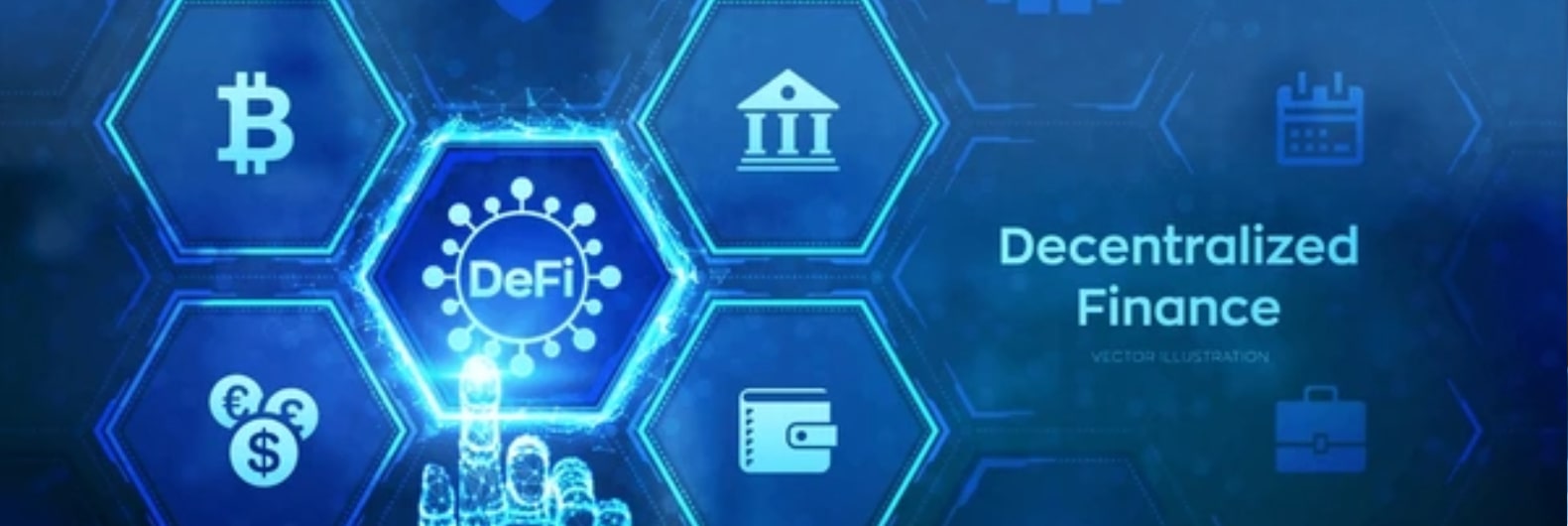With the rise of Blockchain, Bitcoin and many other cryptocurrencies, people across the globe are now turning their heads around and are trying to know or understand what these three are, how they work and why it is that they are showing no signs of slowing down in this era, where technology is just booming.
While they are different from one another, they do share some similarities.
One thing that they do have in common is the distributed ledger technology, which is the concept that is powering them and with proper implementation, they can offer so much in this digital times.
Because of how new these concepts are and how companies are still adapting to these technologies, a lot of people still have no idea on what they are capable of doing, which is why we are going to talk about Blockchain Solutions and why it is important for it to have a distributed ledger.
Before we talk about anything else, let’s talk about what blockchain is..
For beginners, Blockchain, which is a type of a distributed ledger, is a shared and an immutable ledger that is capable of facilitating the process of recording transactions or tracking assets in a specific business network efficiently while protecting the information from being changed or hacked.
This type of checnology can virtually track anything that is traded within a blockchain network, and with this technology, the distributed ledgers use nodes to record, share and synchronize transactions in their own electronic ledgers instead of keeping the data centralized, which was done in the traditional ledgers.
In simpler terms, blockchain organizes data into blocks that are chained together, making all transactions in the network easy to track.
Through this technology, secure transactions, reduce compliance costs and the ability to speed up data transfer processing are all possible simultaneously. Not only that, but this technology can also help contract management and audit the origin of a product, which means it can also be used in voting systems in the future along with many other sectors.
Because of how capable Blockchain is, we can use this technology to transfer a number of assets while maintaining ownership transfer records.
Not only that, but because of how Blockchain is capable of ensuring privacy, security, trust, and transparency for all the transactions that are done through its network, people are looking forward to using this technology other than cryptocurrency transactions.
In the future, the Blockchain Technology can be possibly used in making international payments, monitoring capital markets, in trade and finance, regulatory compliance, money laundering protection, insurances, basic transactions or even supply chain management.
Not only in those scenarios, but with proper implementation, the blockchain technology can also be used in sectors such as supply chains, healthcare, government security apps, retail, media, advertising, oil and gas, manufacturing, insurance, financial services, and travel and transportation.
If you are planning to implement the blockchain technology into your business, you can in fact experience numerous benefits thanks to its ability to offer privacy, security, trust, and transparency for all the transactions that are done through its network
Here are some of the best benefits that can be offered by the Blockchain Technology to those that are trying to use it:
Transaction Records
Because the blockchain technology is an immutable digital ledger, all the transactions can be recorded, and none of them are not allowed to be modified once they have been registered. This can allow efficient security and 100 percent transparency to those that are capable of viewing the transaction history.
Secure
Blockchain is mainly known for its amazing security features, and because anything within its network is not allowed to be modified, you can get assurance that no one can mingle with the information that each block carries.
Automatically Updated
All transactions are done in 100 percent transparency and instantly, meaning that the ledger is automatically updated, giving anyone that holds the network to have accurate information regarding the transactions that are carried out within it
No Fee Is Required
Because it is a decentralized system, anyone who uses this technology is not required to pay any intermediary fee, allowing anyone that uses it, to reduce costs while making transactions.
Authenticated Transactions
Everything within the blockchain network is verified or confirmed by the participants, which provides an authentication of a transaction, making every single thing valid within the network.
Now, let’s talk about a distributed ledger
A distributed ledger is a database that is shared and synchronized across multiple platforms, countries, institutions or apps while being completely accessible to multiple users.
The DLT (Distributed Ledger Technology) allows transactions to have witnesses, and the participant of each node of a network is allowed to access the recordings that are shared across or within the network.
Also, all the users or participants of a network are allowed to own an identical copy of a certain recording.
When it comes to security and transparency, any changes or additions that are made in the ledger are all reflected or are copied to all the participants of the network in just seconds, or in some cases minutes.
The Uses Of Distributed Ledgers
Right now, distributed ledger technology is still being explored and developers across the globe are still finding ways to maximize its benefits while properly implementing it within real-time user scenarios in this modern era.
However, there are some sectors that have used this technology.
The DMT (Distributed Ledger Technology) has shown amazing potential in revolutionizing 3 fields, which are institutions, corporations and governments across the globe.
Currently, this technology can be rendered most useful for government agencies across the globe, as it can be properly used in collecting taxes, issuing passports or documents, record land registries, record licenses or even being involved in voting procedures.
The distributed ledger technology is also making a lot of noise in other industries, which includes finance, music, entertainment, diamond trading, supply chains, artworks and auctions, where it can be used for registries, recordings and other procedures to attain assets.
When used properly, Distributed Ledger in Blockchain can offer a lot of benefits, which includes:
Security
The thing with the distributed ledger technology is that all the transactions are properly encrypted and once the transaction has been validated, it becomes secure, and it prohibits anyone from updating or making chances into it.
Decentralized
The members of networks and nodes are given a copy of the ledger in order to offer 100 percent transparency. This allows decentralized private distributed networks to see a huge improvement in offering reliable systems and giving assurance in transparency along with continuous operations without any stoppages.
Privacy
The identity of all participants in a certain network or node in a distributed ledger are kept all secret, which means that no personal information is revealed to anyone, keeping everyone within the network anonymous.
Transparency
When used in sectors such as finance, music, entertainment, diamond trading, supply chains, artworks and auctions, distributed ledger technology can offer an amazing level of transparency to everyone.
Fast
When compared to traditional transaction methods, the distributed ledger technology is capable of handling larger transactions in a faster way while offering proper transparency to everyone within a network.
Once a data or piece of information is stored on a distributed ledger, transparency is offered to all the users that are present in a specific network, and because of that more trust can be built between them.
When it comes to the blockchain technology, once the data has been added into the blockchain itself, it automatically gets added in a network chain, and when multiple transactions are carried out, all of them can be seen in a trail of blocks. This makes it vital for financial situations where verification and auditing is important, and because of how secure and accurate it is, there’s little chance of errors or frauds happening within a network.
With these 2 used together, various sectors across the globe, particularly governments, can offer so much to everyone. But before we talk about the benefits that they can offer when used together, it is important to note where these technologies are being used.
Right now, financial firms and companies have used decentralized blockchain technology for tax collections, registrations, votings, and other documentation uploading services across the globe. Mostly, this technology is used in the financial sector thanks to the protection that blockchain offers against money laundering, which is made possible by the DLT (Distributed Ledger Technology as it uses high-end encryption.
In conclusion, blockchain is itself a specific type of distributed ledger, which is designed to record all transactions or interactions while prioritizing transparency, efficiency and security. However, they are not the same, but when used efficiently, it can bring multiple benefits to anyone that uses these technologies.
Distributed Ledgers such as the Blockchain technology is most useful when it comes to financial transactions as they are known to be capable of cutting down on operational inefficiencies, meaning that anyone who uses it can save a lot of money. Not only that, but amazing security is offered to anyone within the network thanks to the decentralized nature.
Like what we mentioned above, this technology is currently most useful for government managed sectors, particularly in the collection of taxes, passport issuing, document portals, registries for land records, license issuing and in voting procedures.
Not only in those sectors, but the DLT (Distributed Ledger Technology) is also making a lot of noise in industries such as music and entertainment, finance, diamond trading, supply chains, registries and procedures or services where obtaining assets are involved.
When used together, multiple sectors across the globe can benefit by using these technologies. Right now, the financial sector is benefiting the most, particularly in so many ways as Blockchain can use the Distributed Ledger Technology to help out in recording, confirming and processing transactions, which can offer better security, transparency and efficiency capabilities in a specific network.














